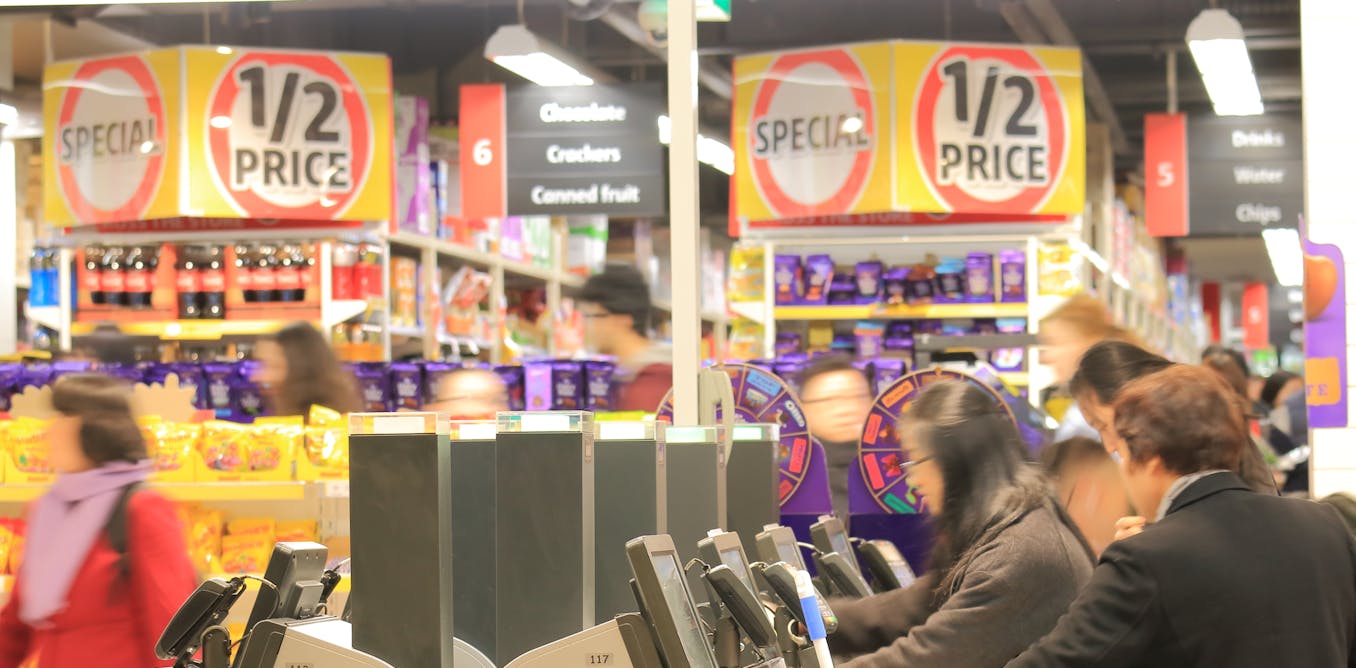A much-awaited report into Coles and Woolworths has found what many customers have long believed – Australia’s big supermarkets engage in price gouging.
What started as a simple Senate inquiry into grocery prices and supermarket power has delivered a lengthy 195-page-long report spanning supermarket pricing’s impact on customers, food waste, relationships with suppliers, employee wages and conditions, excessive profitability, company mergers and land banking.
The report makes some major recommendations, including giving courts the power to break up anti-competitive businesses, and strengthening the Australian Competition and Consumer Commission (ACCC).
It also recommends making the Food and Grocery Code of Conduct mandatory for supermarket chains. This code governs how they should deal with suppliers. The government’s recent Independent Review of the Food and Grocery Code also recommended making it mandatory for the supermarket giants.
But at this point it’s hard to say what, if anything, the recommendations will mean for everyday Australians and the prices they actually pay.



I’ve just spent a month in Taiwan. There are no supermarkets there basically.
There are markets. With everyday people trading.
The money moves amongst the people. Not amongst the two big supermarkets like in Australia.
Due to this, the people get the money. Not the mega corps.
The competition is balanced and strong, and prices are low.
I saw just how screwed we are in Australia when visiting Taiwan.
Their culture won’t allow a duopoly like we have.
I can only hope that we can break free from it.
Canada has the same problem, but our monopoly now is an everything company. Loblaws owns pharmacies, financial institutions, telcom infrastructure, and are vertically integrated throughout the logistics and production side of the grocery chain, while also operating the most stores. They got caught price fixing bread for almost 20 years, and they posted the highest quarterly revenue in decades after “adjusting for inflation”. The government is talking about trying to more heavily regulate the industry but when there’s only basically one guy doing it, he effectively tells you to go fuck yourself because you can’t turn to anyone else.
Right now, for the month of May at least, we’re actively boycotting their stores, which is quite difficult in a lot of remote regions. It’s a good thing that it’s springtime though, because farmers markets are opening up more frequently around town where I can get actual quality produce and goods from real people who produced it all themselves. I am with you 100% on wishing we were all market-based and not supermarket-based.
At the very least, we’re trying to hit the corps in the wallet and see what happens. The CEO has actually been on record calling the boycott “misguided”.
Even if boycotting supermarkets doesn’t force them to change, you are at least helping local markets to survive and improve as an alternative. The only reason those markets still existed for you to turn to is because of the work and patronage of people who were there before you, and now you are also playing your part in keeping them alive for future consumers.
This is one of the core purposes of a governments existence — to protect citizens from the unethical/immoral sociopaths that capitalism’s for-profit nature encourages and rewards.
If they’re too corrupt or inept to perform that function then they don’t deserve to govern.